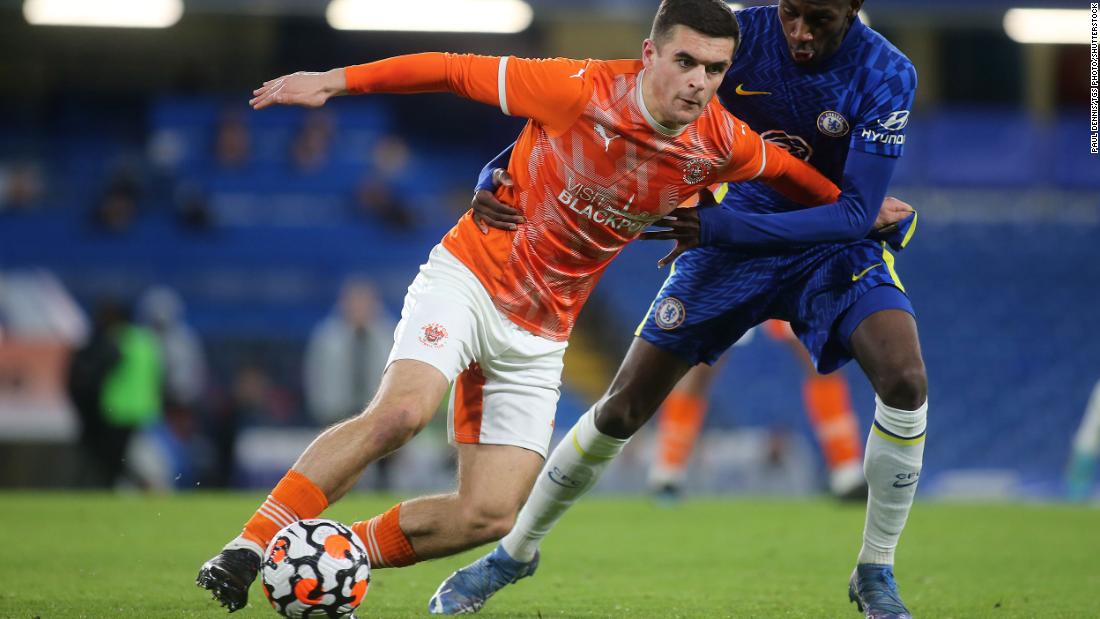
In less than 24 hours, the young footballer has become a household name; written about on the front pages, discussed on morning television, mentioned countless times on social media, and praised by UK Prime Minister Boris Johnson.
“I’ve known my whole life that I’m gay, and I now feel that I’m ready to come out and be myself,” the English footballer said in his statement.
Justin Fashanu was the first and, until now, only active male professional footballer in the UK to speak publicly about being a gay man. That was 32 years ago. Fashanu played on for seven years but, aged 37, he took his own life.
Daniels’ courage should not be taken lightly. Men’s football has struggled to keep pace with the rest of society and, sadly, in 2022, the game in the UK needed a trailblazer and a teenager who only made his first-team debut for Blackpool two weeks ago is it.
“I am ready to be myself,” said Daniels in his statement, before adding it was a “step into the unknown.”
Remarkably, Daniels is he is not a seasoned professional, a player who has established himself in the game. He is a 17-year-old playing in the second tier of English football who only recently signed his first professional contract.
He has shown leadership and strength that belies his years, though he conceded he had also made himself an easy target for society’s bigots.
It was only last month that a football fan was banned from watching live football by a British court for three years for shouting homophobic abuse at a Premier League match between Brighton and Hove Albion and Arsenal in October 2021.
“Shout what you want,” said Daniels, “it’s not going to make a difference.”
Leadership
Daniels is the player who scored four goals in a youth fixture the day after telling his mother and sister. Secrets can, after all, be a burden so the freedom to be himself off the pitch gave him the freedom to express himself on it.
The reaction to Daniels’ announcement has been positive. The world of football, its players, pundits and governing bodies at least, has united.
Thomas Hitzlsperger, who came out after retiring, said “well done” to Daniels on Twitter and former Manchester United defender Rio Ferdinand tweeted: “Massive respect for this brave decision.”
“Thanks for your leadership,” wrote Guardian journalist Barney Ronay, former England striker Gary Lineker told the BBC that others will follow Daniels’ path, while the Daily Mail wrote: “… it’s hard to imagine he will be alone for long.”
Living life as your authentic self is not a privilege all enjoy, especially when living in the public eye, and so the reaction to Daniels’ announcement is significant because not only will it help the player himself, but it may also encourage others to also share their stories.
Football feels a little more inclusive today thanks to Daniels because representation does, indeed, matter.
Issues, which cannot be addressed by one man’s determination to be himself, of course remain in the sport. Daniels alone cannot change that.
Men’s professional football is still behind the women’s game — there were 40 openly gay, lesbian and bisexual players at the 2019 Women’s World Cup — and other sports.
Daniels, who said he had known he was gay since the age of five or six, received support from his club and Stonewall before making his statement and he will need that to continue because being a trailblazer can be a heavy load to carry. He is a young man at the start of his career. A young man who, before Monday, few would have heard of.
There will be more headlines, more interviews, but his sexuality should not be what defines him to us.

